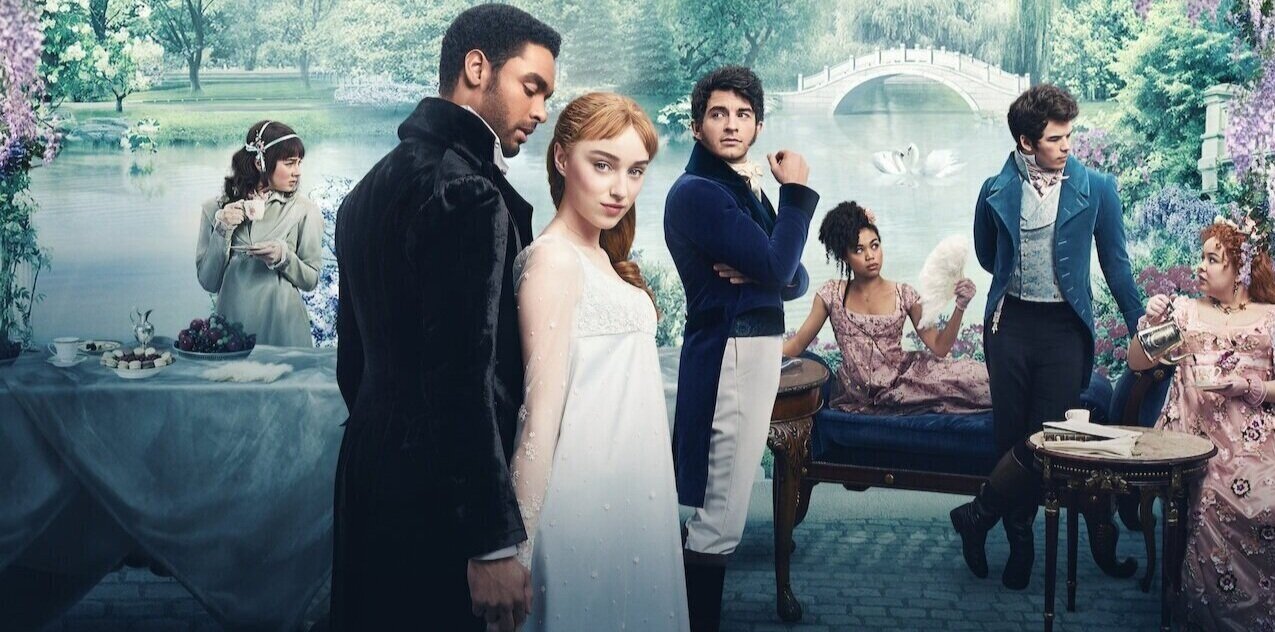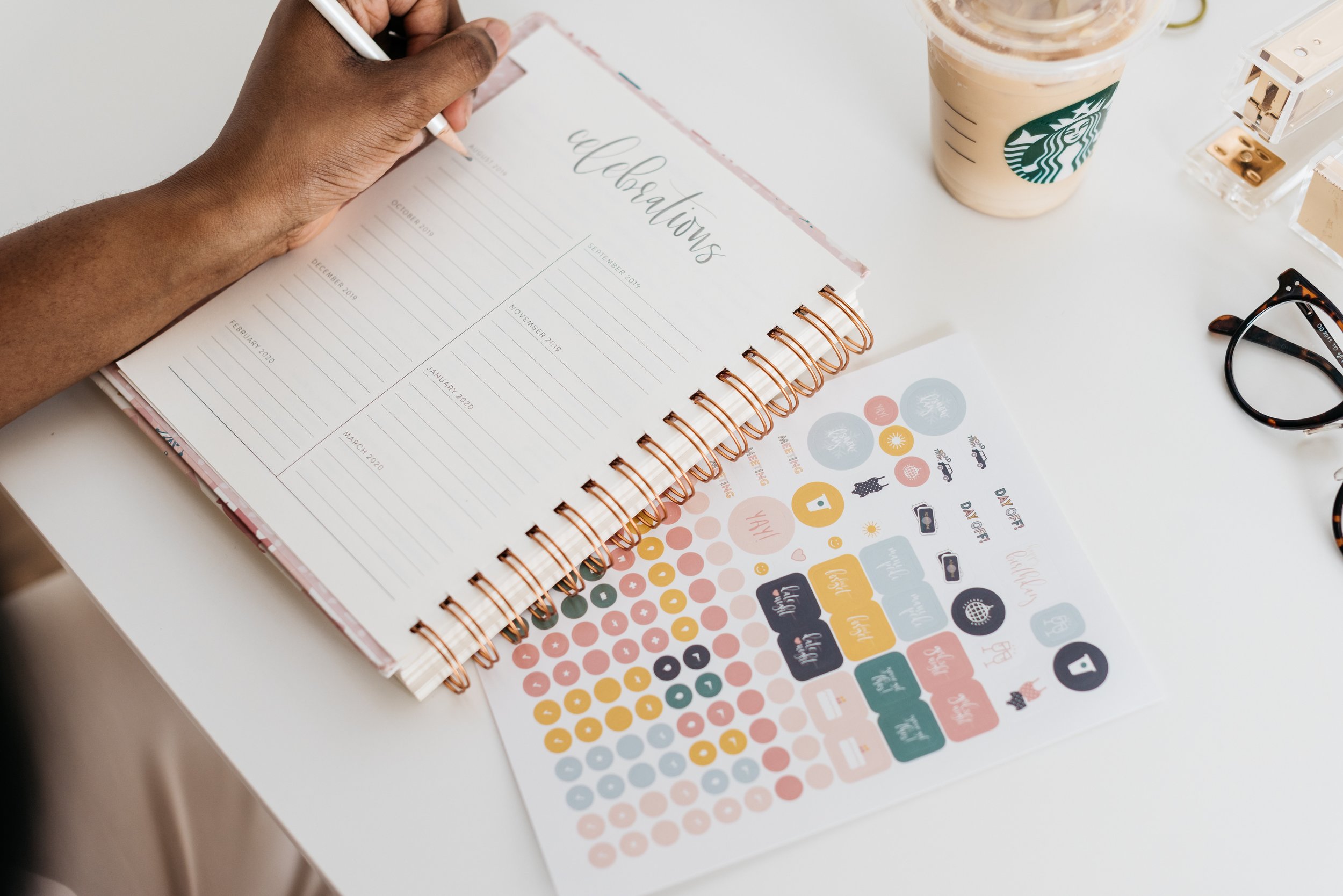BRIDGERTON: A BLACK PERSPECTIVE
BRIDGERTON: A BLACK PERSPECTIVE
TV Show Review
By now, you’ve probably heard of the sensation that is Bridgerton, a Netflix period drama TV series about gossip, courtship and romantic entanglements in the 19th century. You’ve probably even binge-watched it – come on, I know you did! And with the notorious Shonda Rhimes (Grey’s Anatomy, Scandal, How to Get Away with Murder) as one of the executive producers of the show, I already knew that it was going to be extremely captivating. I also knew that it wasn’t going to be your typical all-white cast, even for that time period. Ms. Rhimes is known for giving black actors leading roles and for putting them front and center in most of her projects. This was no exception. However, although I was thoroughly entertained by Bridgerton and appreciated the breath of fresh air brought by its distribution, I couldn’t help but make some observations about how it portrayed race – whether it was intentionally done by the producers or not.
READ: 6 HEALTHY WAYS TO DEAL WITH THE INJUSTICES HAPPENING DAILY AGAINST BLACK PEOPLE
Black people in 1813 England
Like I said, it really was refreshing to watch this reimagined 19th century England, where one’s skin colour is not a factor in dating or social status. It wasn’t even mentioned throughout the show, except once or twice to explain how black people came to have high ranks, land, properties and such money at that time (peace, reunification, land and status given to people of colour as reparations (yasss!)). The Queen was black, the Duke – and most sought-after bachelor of the ton – was black, and so were two of the women at the center of most intrigues: Lady Danbury and Marina Thompson. I even enjoyed watching the courtship scenes in the ballrooms where everyone was flirting with everyone, regardless of their ethnicity.
Nonetheless, I couldn’t help but sense an acknowledgement of colour when it came to Will Mondrich in the role of a robust boxer. His main purpose within that society was, as we’ve seen too many times in history, to entertain the rich and white (let’s be honest, there wasn’t that many black folks in the stands). It was also clear to me that the main reason why the Baroness Featherington hated Marina and treated her so badly was because the poor girl was black! Even though it was never explicitly articulated, it was all in the acting, face expressions and looks she gave her step-niece throughout the season. Even before she found out she was pregnant. Even if Marina could have given prestige to this family, the thing the Baroness yearned for the most, given all the suitors she had at some point. Let that sink in.
Interracial dating
Yes, it was nice seeing these young people courting each other without any preconceived notions based on race. Yet, on our way towards more diversity and representation on our screens, a lot of people are noticing the tendency for BIPOC leads to have mainly white love interests, especially when it comes to black leads. Here we have another black man falling in love with the most basic (no offense) fair-skinned-blue-eyed pretty white girl. No hate and nothing against interracial dating when it’s healthy. The reality simply is, if we’re talking about representation, that there are more black couples than interracial couples out there, but the former are way more underrepresented in movies and TV shows than the latter. Why is that?
Moreover, the only black couple we do see in Bridgerton is living modestly and struggling financially, forcing them to take a white man’s bribe and lose integrity. Thanks to the redeeming quality of their love, we were at least able to witness black love that was kind, supportive, understanding and gentle, unlike how it is usually depicted on TV.
Should we maybe also address the scene where Daphne LITERALLY rapes Simon by mounting him during sex and refusing to pull away as he begs her to, resulting in him cumming inside her against his will (he didn’t want to have children)? Isn’t it reminiscent of the black man’s body being historically objectified and used for the white woman’s needs (here for a baby)? Enough said!
The portrayal of black women
Why is it that the black women of the show were given stereotypical roles with a veil of progress? Don’t get me wrong, I loved seeing them in powerful and leading roles. But at the end of the day, Queen Charlotte was presented as bitter and unloved by her mentally ill husband the King. Lady Danbury was seen as this motherly-ish figure for Simon and her storyline evolved around him. She was this stern and old single spinster with no love interest, and seemingly no interest for love. She was another strong black woman “who don’t need no man”.
Another stereotype in which we portray black women, or rather black girls, on screen is the teenage pregnancy, as exemplified by Marina. And it’s not enough that the baby’s father has gone to war, sis’ has to go through this pregnancy alone with strangers that despise her, after being sold to them! She is psychologically abused and is led to believe that her lover didn’t want to be with her anymore. They try to force her to marry a nasty old man. She is betrayed by the only person she thought was her friend. She tries to make herself miscarry with tea, and when it doesn’t work, she ends up with her lover’s brother after finding out he actually still wanted to be with her, but had died in the war. Whew! Talk about the black girl struggling! Tell me something new! At least that baby was conceived in an act of true love… And I’ve already talked about Alice Mondrich and her boxer husband, struggling, but fortunately not with the beautiful love they had for each other. I only wish we saw more of her and their love.
Black mental health
I could reiterate some of the things I’ve already written, for the purpose of this matter, but I’d like to bring up something I haven’t mentioned yet and that I feel was crucial to the story line: the Duke’s blatant daddy issues! Without them, there’s no Bridgerton, as simple as that. Simon’s relationship – or rather lack thereof – with his father made him who he is today: unwilling to open his heart to a woman and refusing to have children, and continue the Hastings line, to spite his father – who is already dead!
Although it is another black stereotype depicted over and over on TV and in the media, we do talk about absent and negligent fathers within the black community. However, we don’t talk nearly enough about the way it affects children – all the way into adulthood – psychologically and in every areas of their lives. It affects the way you trust, the way you love, who you trust and love, the way you cope (it can be by overworking yourself as much as taking drugs or alcohol), your goals in life, your sense of purpose, your self love, your self worth, and many other aspects.
In Bridgerton, we really got to see in Simon a direct by-product of the way his father treated and rejected him. Ending up in Simon denying and rejecting love (for and from others) and parts of himself, ultimately, as his father did to him. Since he had worked so hard his whole life at avoiding serious relationships to try to not be like his father, he didn’t realize that he was actually becoming just like him: a cold, angry and loveless husband – and potentially a bad father! Father issues are real guys! Which is why it’s important to discuss the matter and destigmatize seeking professional help to heal from those deep-rooted wounds. Otherwise, we’re bound to repeat the same mistakes and pass them on to the next generation.
As a whole, I did enjoy the show and its twist on period drama. Even though I’m not convinced that all the elements I mentioned were showcased that way on purpose to bring up awareness, I appreciated some questions being raised regardless. It gave me hope. There are discussions and therefore possibilities for the narratives to improve and advance.
As I’m always looking to learn something new about the world and its people, I've also been on a journey to discover the world within my own self. Which is why I love sharing and exchanging opinions and knowledge with people. In a way, communication has always been part of my pursuit, whether it was by getting my bachelor's degree in Communications, hosting a radio show in Australia even though I barely spoke English back then, or even by recently getting a certification in NLP (Neuro-Linguistic Programming). I feel like I have so much to share with the world. And so much more to learn.










